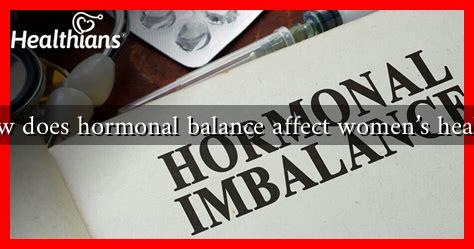-
Table of Contents
How Does Hormonal Balance Affect Women’s Health?
Hormonal balance plays a crucial role in women’s health, influencing everything from mood and energy levels to reproductive health and chronic disease risk. Hormones are chemical messengers that regulate various bodily functions, and any imbalance can lead to a range of health issues. This article explores the significance of hormonal balance, the effects of imbalances, and strategies for maintaining optimal hormone levels.
The Importance of Hormones in Women’s Health
Hormones such as estrogen, progesterone, and testosterone are vital for numerous bodily functions. They are involved in:
- Regulating the menstrual cycle
- Maintaining bone density
- Controlling metabolism and weight
- Influencing mood and mental health
- Supporting reproductive health
Understanding how these hormones interact and affect various systems in the body is essential for recognizing the signs of imbalance and seeking appropriate treatment.
Common Hormonal Imbalances in Women
Several factors can lead to hormonal imbalances in women, including stress, diet, lifestyle choices, and medical conditions. Some common hormonal imbalances include:
- Polycystic Ovary Syndrome (PCOS): A condition characterized by elevated levels of androgens, leading to irregular menstrual cycles, weight gain, and fertility issues.
- Menopause: A natural decline in estrogen and progesterone levels, resulting in symptoms such as hot flashes, mood swings, and increased risk of osteoporosis.
- Thyroid Disorders: Conditions like hypothyroidism or hyperthyroidism can disrupt metabolism, energy levels, and overall health.
- Adrenal Fatigue: Chronic stress can lead to an imbalance in cortisol levels, affecting energy, sleep, and immune function.
Effects of Hormonal Imbalance on Women’s Health
The consequences of hormonal imbalances can be far-reaching. Here are some of the most significant effects:
- Mood Disorders: Hormonal fluctuations can lead to anxiety, depression, and irritability. For instance, many women experience premenstrual syndrome (PMS), which can cause significant emotional distress.
- Weight Gain: Hormonal imbalances can affect metabolism, leading to weight gain or difficulty losing weight. For example, women with PCOS often struggle with obesity due to insulin resistance.
- Reproductive Issues: Irregular cycles, infertility, and complications during pregnancy can arise from hormonal imbalances.
- Bone Health: Low estrogen levels during menopause can lead to decreased bone density, increasing the risk of osteoporosis.
Strategies for Maintaining Hormonal Balance
Maintaining hormonal balance is essential for overall health. Here are some effective strategies:
- Healthy Diet: A balanced diet rich in whole foods, healthy fats, and lean proteins can support hormone production. Foods like avocados, nuts, and leafy greens are particularly beneficial.
- Regular Exercise: Physical activity helps regulate hormones, improve mood, and maintain a healthy weight. Aim for at least 150 minutes of moderate exercise per week.
- Stress Management: Techniques such as yoga, meditation, and deep breathing can help reduce stress and lower cortisol levels.
- Sleep Hygiene: Prioritizing quality sleep is crucial for hormonal balance. Aim for 7-9 hours of sleep per night.
- Regular Check-ups: Regular visits to a healthcare provider can help monitor hormone levels and address any imbalances early on.
Conclusion
Hormonal balance is a cornerstone of women’s health, influencing a wide array of physical and emotional well-being aspects. Understanding the importance of hormones and recognizing the signs of imbalance can empower women to take proactive steps toward maintaining their health. By adopting a healthy lifestyle, managing stress, and seeking medical advice when necessary, women can support their hormonal health and overall quality of life. For more information on women’s health and hormonal balance, consider visiting WomensHealth.gov.


